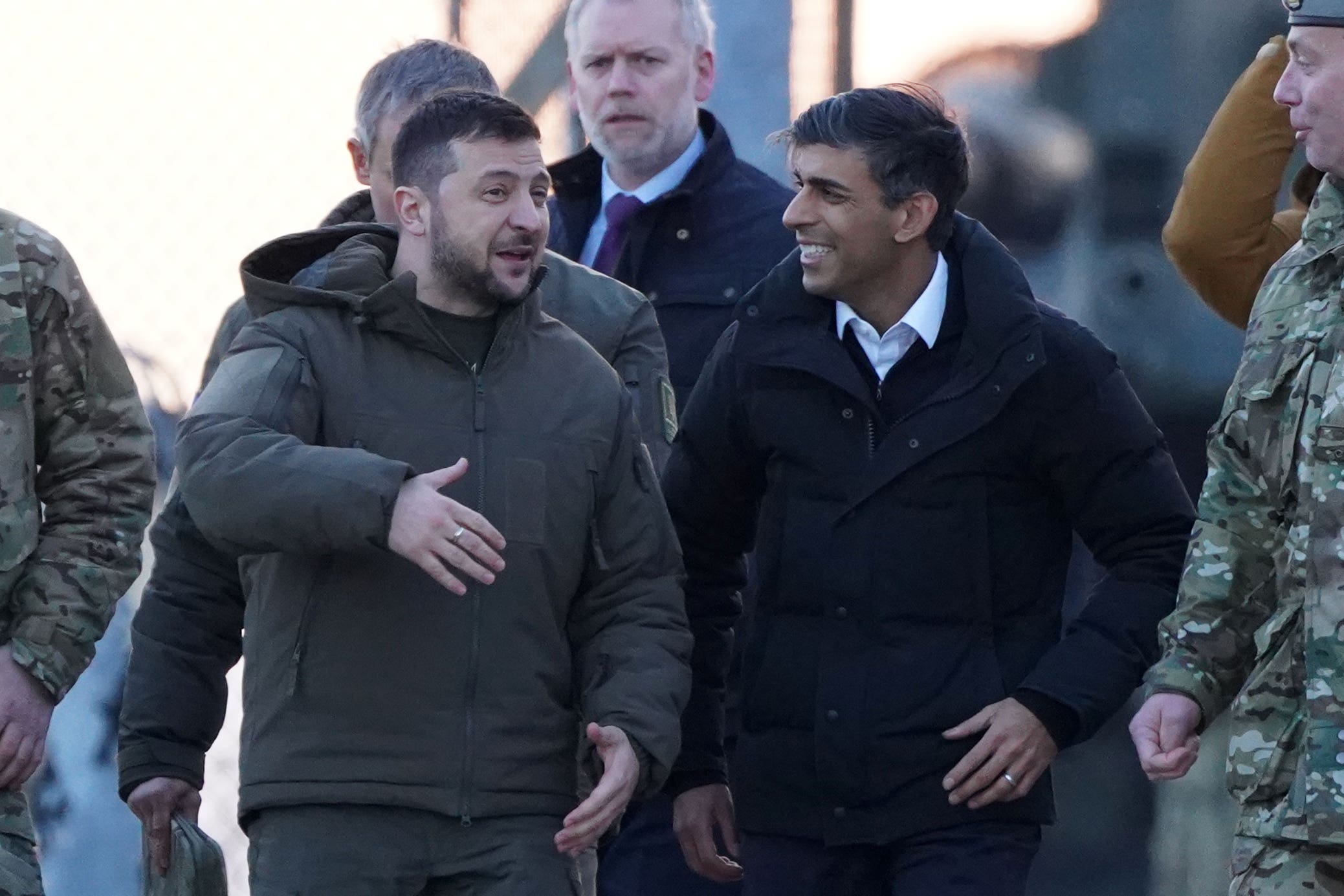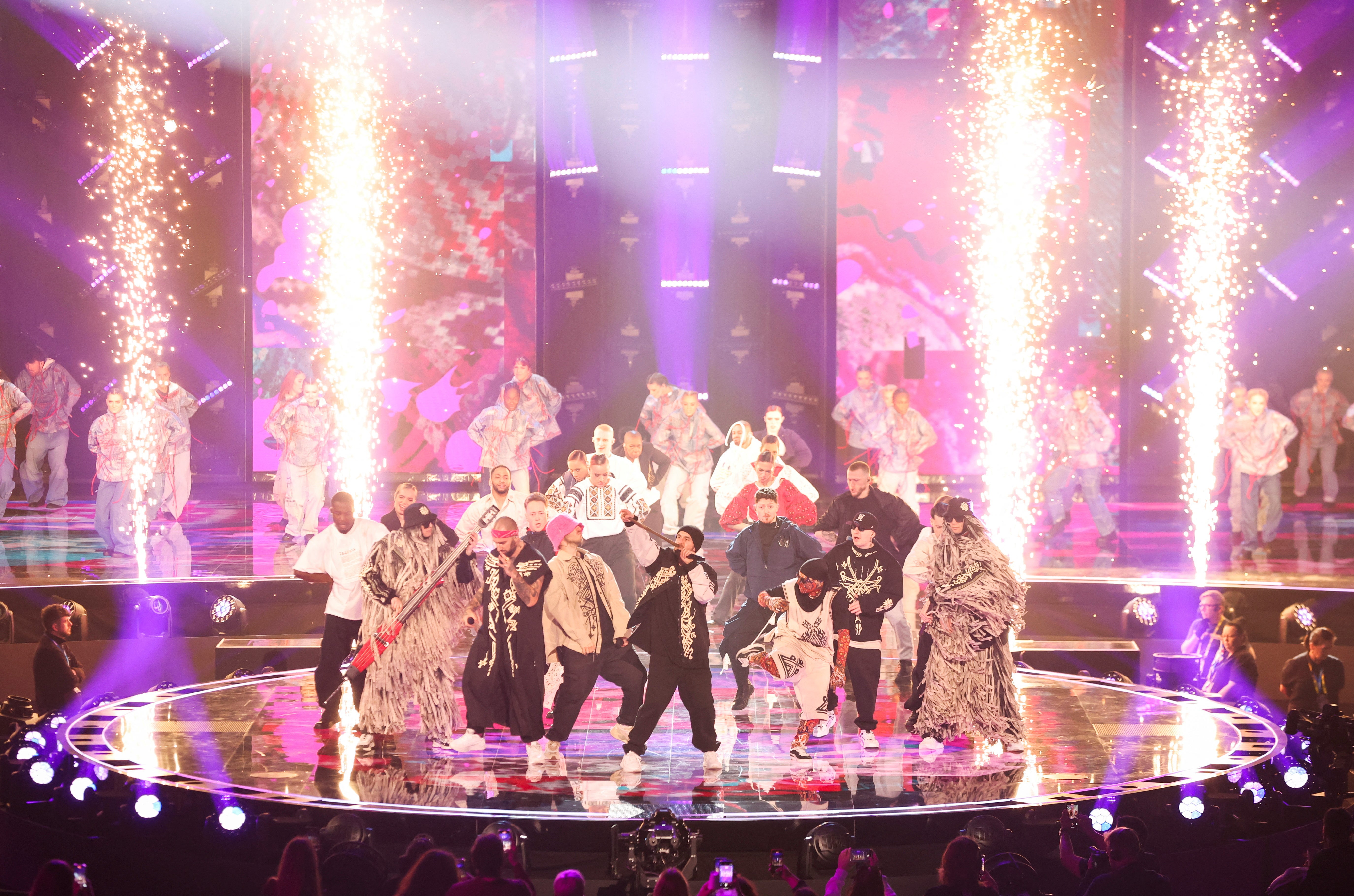Ukraine’s president Zelensky should be allowed to speak at Eurovision, Sunak says
Ukrainian president’s address would be against rules of contest, organisers say
Your support helps us to tell the story
From reproductive rights to climate change to Big Tech, The Independent is on the ground when the story is developing. Whether it's investigating the financials of Elon Musk's pro-Trump PAC or producing our latest documentary, 'The A Word', which shines a light on the American women fighting for reproductive rights, we know how important it is to parse out the facts from the messaging.
At such a critical moment in US history, we need reporters on the ground. Your donation allows us to keep sending journalists to speak to both sides of the story.
The Independent is trusted by Americans across the entire political spectrum. And unlike many other quality news outlets, we choose not to lock Americans out of our reporting and analysis with paywalls. We believe quality journalism should be available to everyone, paid for by those who can afford it.
Your support makes all the difference.Ukraine’s leader Volodymyr Zelensky should be allowed to address an audience of millions during Saturday’s Eurovision Song Contest, Rishi Sunak has urged, rejecting suggestions it would politicise the ceremony.
The UK is hosting the final on behalf of last year’s winner, as the country continues its efforts to repel Russian invaders.
The prime minister’s spokesman said Mr Sunak was “disappointed” at the decision by the European Broadcasting Union (EBU) to block Mr Zelensky’s request to make a speech at the contest amid fears it would be too political.
Allowing the Ukrainian president to speak was important because the country was fighting for “fundamental” values and freedoms, he argued.
He was backed by former prime minister Boris Johnson, who said the only reason Eurovision was not being held in Ukraine was because of Putin’s aggression. Other senior politicians lined up to support the call.
Former culture secretary Nicky Morgan told The Independent: “Given the circumstances, I think Zelensky should be allowed to speak. “
Damian Green, the former deputy prime minister, argued that this year’s contest was a “unique” event.
“The viewers made their feelings known last year by voting for Ukraine and the rest of Europe should respect that,” he told The Times.

Another former culture secretary Karen Bradley said it was “petty” under the circumstances to stop Mr Zelensky “from thanking Liverpool and the UK for stepping in to help Ukraine”.
Earlier Mr Sunak’s spokesperson said: “The prime minister believes it would be fitting for President Zelensky to address the event and we’re disappointed by the decision from the European broadcasting union.”
"The values and freedoms that President Zelensky and the people of Ukraine are fighting for are not political, they're fundamental, and Eurovision themselves recognised that last year when they rightly suspended Russia's participation from the competition."
Mr Johnson said “it would have been right” to hear from Mr Zelensky during the final.
“There is only one reason the contest is not in Ukraine and that is because of Putin’s illegal war,” he said.

In a statement, the EBU, an alliance of public broadcasters, said the contest was “governed by strict rules and principles which have been established since its creation”.
“One of the cornerstones of the contest is the non-political nature of the event,” the organisers added.
“This principle prohibits the possibility of making political or similar statements as part of the contest.”
The EBU said that Mr Zelensky’s request to address the audience at Eurovision had been made “with laudable intentions” but “regrettably cannot be granted by the EBU management as it would be against the rules of the event”.
It said Ukraine’s music and culture would feature strongly throughout all of its live shows and that 11 Ukranian artists would be performing or featuring across the semi-finals and grand final.
It also plans to air short films from around Ukraine to introduce artists.

“We believe that this is the best way to reflect and celebrate Ukraine’s Eurovision win and show we are ‘United By Music’ during these hard times,” it added.
The BBC referred The Independent to the EBU’s statement when approached for comment. The broadcaster expects the show to be watched by more than 160 million viewers worldwide.
On Friday, BBC Eurovision commentators Rylan Clark and Scott Mills stressed the contest is non-political but said they were not involved in the show format.
Earlier this week Mr Zelensky said he would have preferred the contest to take place closer to Ukraine.
“I have great respect for the United Kingdom and its society. It is an amazing country,” he told the BBC.
“From the very start my opinion has been that if we can’t host Eurovision it should take place in one of the countries that share a border with us, such as Slovakia, Poland or any other country which our people can reach easily. Something nearby.”
The contest is taking place in Liverpool with the final airing on Saturday evening.
No 10 said there were no plans to intervene or ask broadcasters to change their mind.




Join our commenting forum
Join thought-provoking conversations, follow other Independent readers and see their replies
Comments